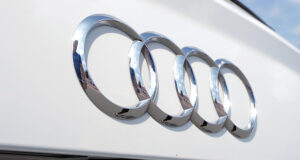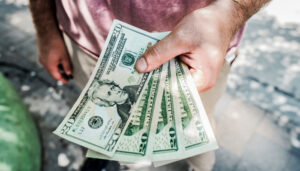On September 4, 2018, super typhoon Jebi hit Japan, killing 11 people, injuring hundreds and leaving thousands stranded at a flooded airport. Translated as ‘swallow’ in the Korean language, this storm was the strongest to have hit the country in 25 years. It happened just as Japan was starting to recover from landslides, heavy rain, flood and record-breaking heat that occurred in the past months.
Just a few days after the typhoon’s landfall, on September 7, the island of Hokkaido was affected by a 6.7-magnitude earthquake. So, as a safety precaution, the Hokkaido Electric Power decided to temporarily shut down their power plants. Of course, many were affected by these natural disasters, including the Japanese car auctions and the automotive manufacturing industry in general.
How the Japanese Car Industry Was Affected by the Storms
Thankfully, most OEMs in Japan seem to have missed the fury of the typhoon in the central region and the earthquake in the north of the country. However, the production at the car assembly plants of Toyota took safety precautions that disrupted the supply chain. During the storm, the company decided to close 11 of their factories early, cancelling the night shifts.
Toyota also mentioned that the parts shortages and the power supply problems brought about by the earthquake also affected their production. According to their official statement, they will plan on restarting production in stages at their plants in the region from September 11 to 13. Meanwhile, Toyota Motor Hokkaido, which manufactures powertrain parts and transmissions at their Tomokomai plant, has resumed some production.
It is worth noting that the Toyota Group company plants, including those that export parts have been affected by the recent storms. These companies include Toyota Auto Body, Toyota Motor East Japan, Toyota Industries, Toyota Motor Kyushu, Daihatsu Motor and Hino Motors.
On the other hand, Mitsubishi, which has plants in the southwest area of Japan, seemed to have escaped the fury of the earthquake. The automaker also reported that the damages they sustained from the recent storms were minimal. All of their facilities, including two powertrain plants and three car factories, were operating as per usual.
Nissan and Honda reported that their manufacturing operations in the country had not been affected by the storms and the earthquake. However, the former did mention that the loss of power caused their proving ground in Rikubetso to be inoperative temporarily. Similarly, most of their dealerships in Hokkaido were closed down temporarily. As the power was restored over the weekend that followed, they were able to gradually reopen their outlets.
Meanwhile, Mazda has started to recover from the bad flooding that swept across the western area of Japan last July. The automaker said that typhoon Jebi and the earthquake did not affect their supply chain or production.
What about Japanese Car Auctions?
In Nishinomiya, waters caused the electrics to short-circuit in an auction site, burning about a hundred used vehicles. Since the car export ports in both Osaka and Kobe were hammered by typhoon Jebi, it is expected that there will be an extensive disruption in the automotive shipments. Cars stored in these ports prior to the storms will be inspected as some of them have been damaged by the winds. Some shipping and logistics firms had trouble getting access to the ports, hence affecting the shipments even further.
Contact Carused.jp for More Information
If you ordered vehicles from Japanese car auctions before typhoon Jebi hit the country on September 4, please do not hesitate to contact Carused.jp for the status of your shipment. On the other hand, if you need more information about buying a used vehicle from Japan, you can still browse our online catalog or use our online auction tool.
If you have questions, contact Carused.jp today and our friendly sales specialists will answer your inquiries.



